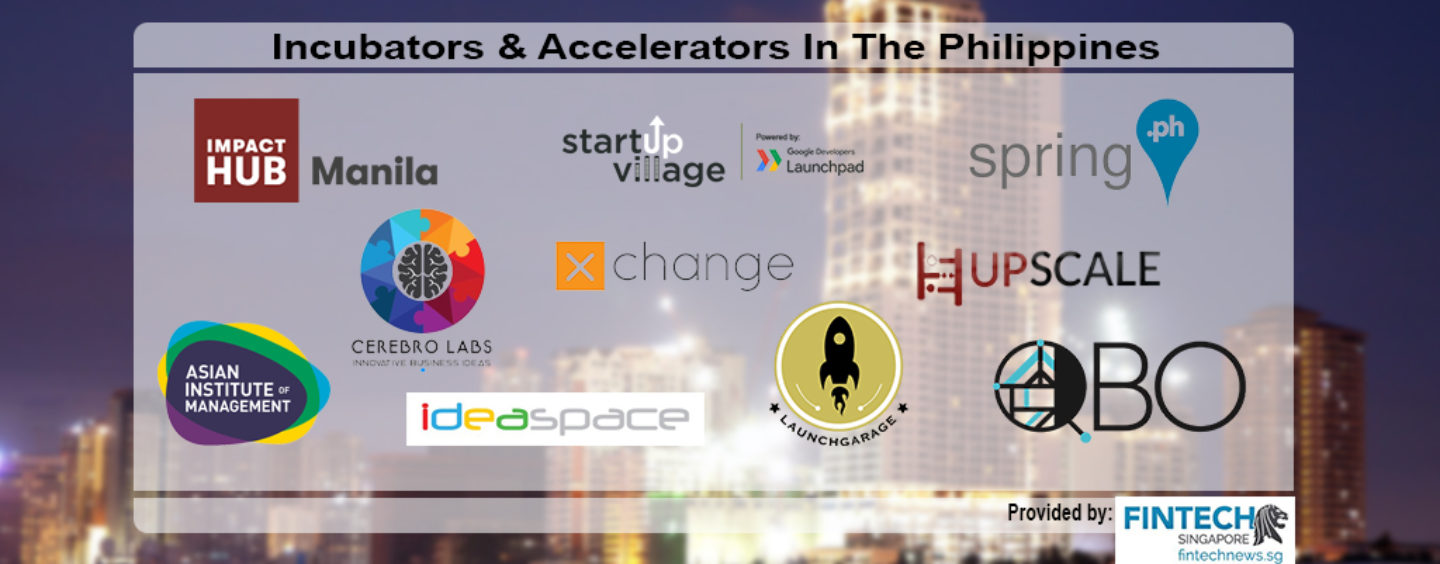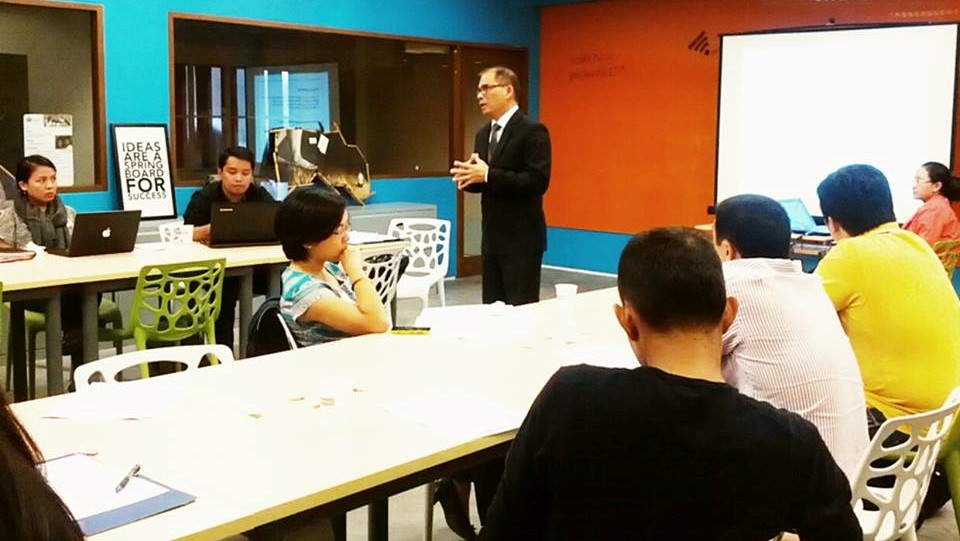The Philippines is considered by several businessmen as a good testing ground to launch and nurture startups not only because of its low cost of living, and growing young and tech-savvy population that speaks English, but also because there is plenty of room for improvement like bridging the gaps in business services, tech, and financial inclusion of the unbanked, to name a few.
And for the past several years the country has seen the birth and consistent development of its local startup ecosystem now composed of a number of incubators and accelerators mostly focused on technopreneurship or tech-enabled ideas and businesses in various industries. They range from ecommerce, Software-as-a-Service (SaaS), healthtech, edutech, and even fintech.
Leaders of incubator-accelerators Launchgarage, IdeaSpace, and QBO Innovation share the same vision that the opportunity for fintech businesses to thrive in the Philippines is strong because of a confluence of a number of unique and positive factors.
Launchgarage CEO Jay Fajardo noted there is “a large diaspora fueling the remittance ecosystem, the growing adoption of e-commerce, and the opportunities made possible for leap-frogging tech and use cases to serve the large number of the unbanked.”
Meanwhile, IdeaSpace and QBO president Butch Meily said he is pretty upbeat about the fintech sector, citing opportunities to improve financial inclusion of the unbanked and under-served by banks through early-stage and mature fintech startups like Ayannah for its digital remittances, payments and business solutions, as well as Lenddo for its online-based credit scoring or assessment.
Meily cited that in the Startup Genome report where QBO and the Department of Trade and Industry contributed, Manila was listed as a top 20 city for fintech.
“Fintech is a big business opportunity if you look at e-payments, the remittance corridor, the credit-lending space plus other interesting, emerging market applications for fintech like crowdfunding for the farming business as being done by Cropital, an IdeaSpace startup. And there is also money transfers and bills payment which JazzyPay does, a QBO startup that got into Rakuten-Techstars, an international accelerator. IdeaSpace has had a number of fintech startups over the years including InvestEd which makes loans to students to enable them to finish their education,”
Meily said.
Below are 10 notable PH-based incubator-accelerators in alphabetical order:
AIM-Dado Banatao Incubator
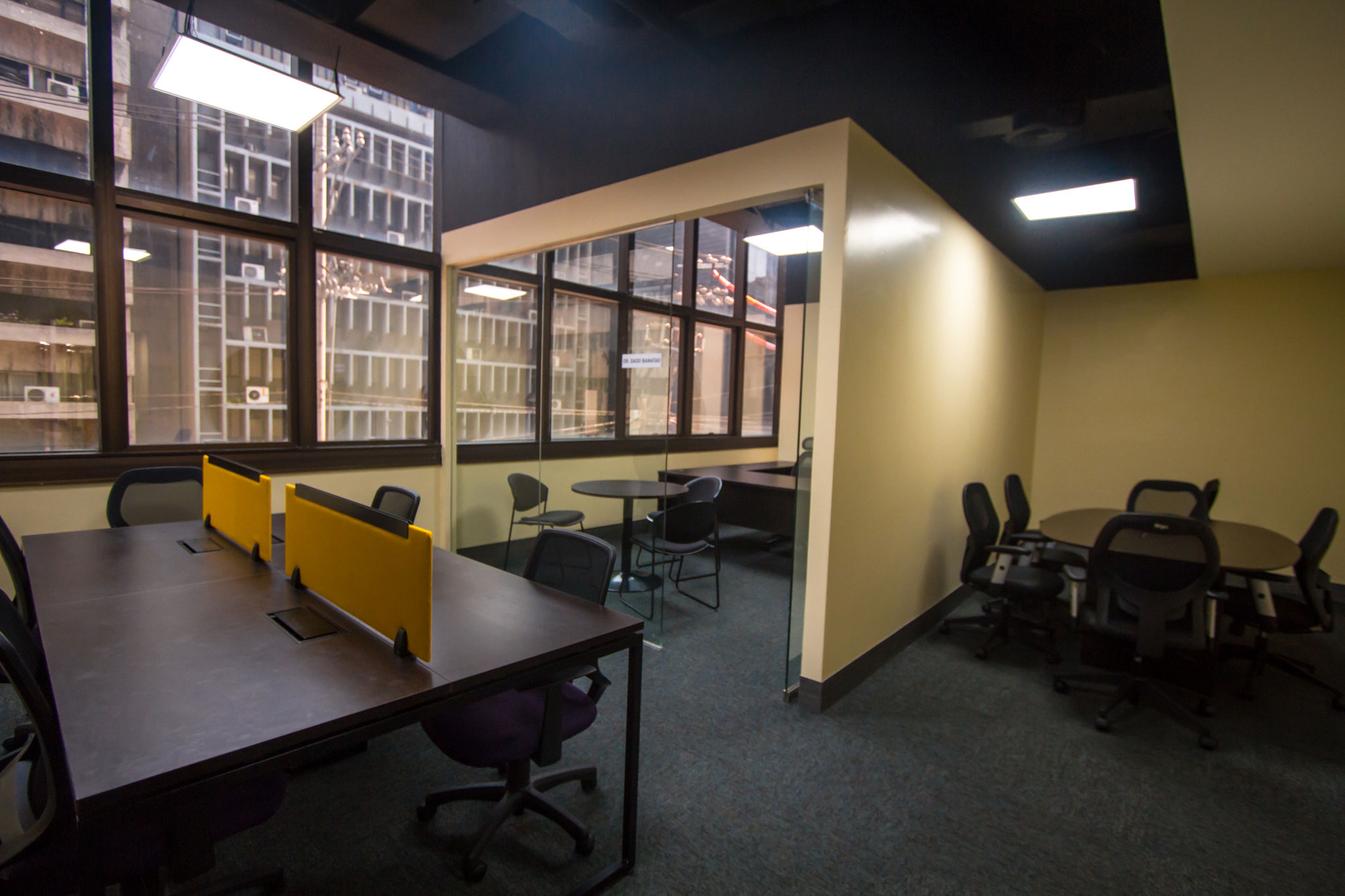 The AIM-Dado Banatao Incubator was launched by the Philippine Development Foundation (PhilDev) and the Asian Institute of Management (AIM) in June 2016 with the goal of providing startups with world-class mentorship, training, and a support network to build and grow their businesses. Dado Banatao, also known as “the father of semiconductor”, is a Silicon Valley tech pioneer and founder of PhilDev.
The AIM-Dado Banatao Incubator was launched by the Philippine Development Foundation (PhilDev) and the Asian Institute of Management (AIM) in June 2016 with the goal of providing startups with world-class mentorship, training, and a support network to build and grow their businesses. Dado Banatao, also known as “the father of semiconductor”, is a Silicon Valley tech pioneer and founder of PhilDev.
The incubator is headquartered within the AIM building in Legazpi Village, Makati City and is open to non-AIM students and graduates. It is geared to support early-stage startups that focuses on sectors that need innovative solutions S&T-based solutions in communications, agriculture, health, AI (artificial intelligence), IoT (Internet of Things), among others. Ideas about software, including hardware and business model innovations are welcome.
Headquarters: AIM-Dado Banatao Incubator
AIM Conference Center Manila, corner Benavidez and Trasierra, Legaspi Village, Makati City.
Cerebro Labs

Manned by a full-time, multi-industry team of mentors trained in Silicon Valley, Cerebro Labs is a tech business incubator and accelerator for pre-seed and early stage startups across all verticals. The team seeks out and invest in promising tech startups whether local or foreign. Selected startups undergo rigorous training and mentoring sessions to help them launch their products or services.
Cerebo Labs’ headquarters in Legaspi Village, Makati City also serves as a fully-equipped and convenient coworking space where startups can connect with a network of domain experts, investors, advisors, and corporate partners. Cerebo Labs is composed of a team of senior executives engaged in the energy, environment, law, legislation, urban planning, finance, engineering, and government affairs.
Headquarters: Cerebro Labs
3rd Floor Universal Re Building 106 Paseo de Roxas Street Legaspi VIllage 1229 Makati
IdeaSpace Foundation
IdeaSpace is a non-profit organization focused on technopreneurship – entrepreneurial ventures involving high technology. Founded in 2012, IdeaSpace claims it has already enabled 74 tech startups and close to 500 startup founders. Its startups benefit from funding, education, market runway, and expert mentoring. The incubation program is kicked-off with a 5-Day Bootcamp followed by a 6-week Remote Incubation Phase. The Acceleration Phase will then run for 4.5 months. Pitch days will be open to partners, investors, and the community.
Prototype Day will be the midpoint event for the Acceleration Phase and Demo Day will be the ending event. In 2016, IdeaSpace changed its structure to equity-free funding similar to that of Google’s Launchpad Accelerator program, and the Start-Up Chile acceleration program funded by the Chilean Government in South America. The goal was to let the founders take full ownership of their ideas and businesses, allowing both to collaborate and bring these early-stage ideas to reality and, eventually, to commercial viability.
Headquarters: IdeaSpace Foundation
4F, Philcox Building, 172 Salcedo Street, Makati City
Impact Hub Manila
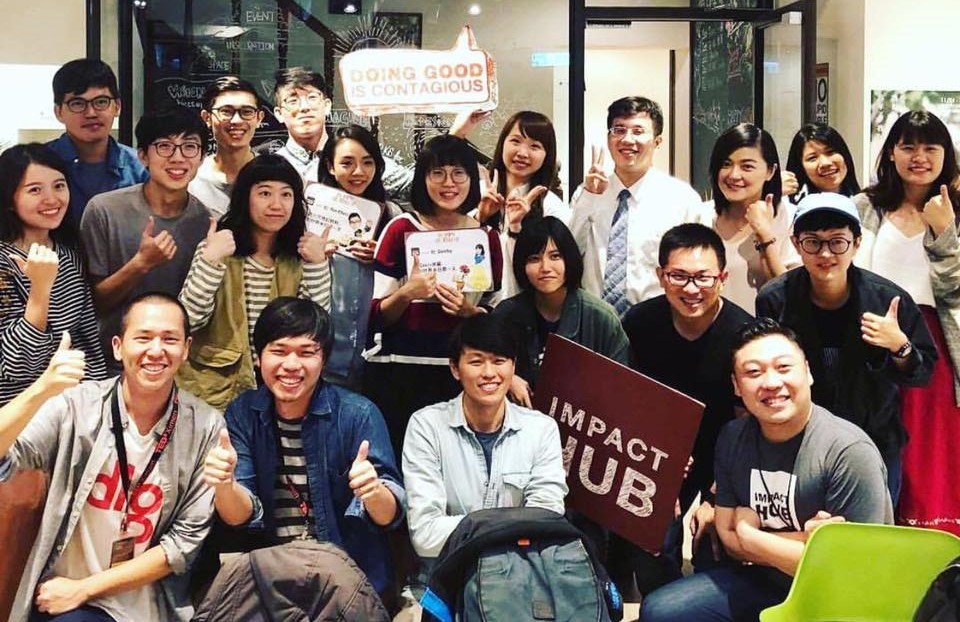
Impact Hub Manila is another incubator and co-working network that offers different programs for both local and global opportunities, supporting ideas that disrupt problems through ground-breaking innovations for a more sustainable world. Its program KICK is an intense, 6-8 week incubation program designed to scale and grow business ideas into sustainable ventures. Mentorship of startups is backed by experienced entrepreneurs and the support of the Impact Hub Community.
Impact Hub Manila is a platform that is globally connected and locally rooted. It also offers collaborative work spaces, does curated events, a wide-array of training programs, access to funding. It has five locations, 250+ Hubbers in the Philippines, 50 entrepreneurship and corporate programs, 100 corporate, university and government partners, and a global network of 102 cities and 17,000 hubbers. Only yesterday, August 6, Impact Hub Manila together with the Department of ICT formally launched in Dumaguete City the Elevate National Roadshow, a new multi-city digital startup project designed to advance the growth of the country’s digital startup pipeline.
Headquarters: Impact Hub Manila
25th floor, Picadilly Star,
27th street corner 4th Avenue, BGC
Launchgarage Inc.
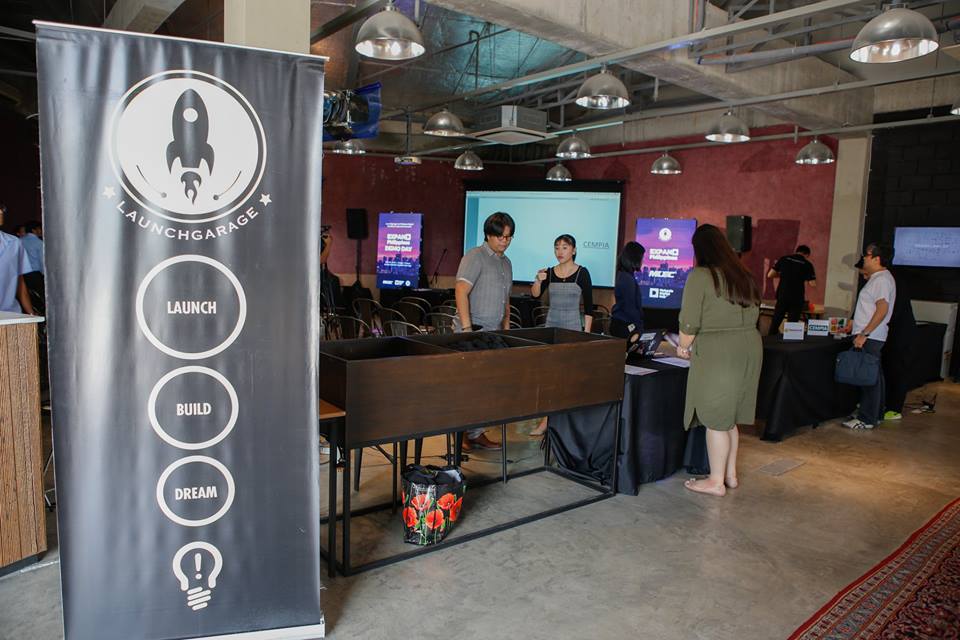
Launchgarage Inc started as a startup acceleration program in 2012 launched by Philippine-based venture capital firm Kickstart Ventures and local applications engineering firm Proudcloud. The company now provides a venue for open collaboration, knowledge sharing, events, acceleration at its coworking space facility in Quezon City.
Launchgarage is also working to evolve from a tech innovation hub into a venture capital company. It is slated to raise an early-stage fund around $5 million to $10 million investment vehicle hopefully by the third quarter of this year. Led by its CEO Jay Fajardo, Launchgarage targets to invest in fintech, agritech, aquatech startups, and BPO enterprise software applications.
Headquarters: Launchgarage Inc
Level 2, Industria Mall, Circulo Verde, Calle Industria, Bagumbayan, Quezon City, 1110 Metro Manila
QBO Innovation Hub
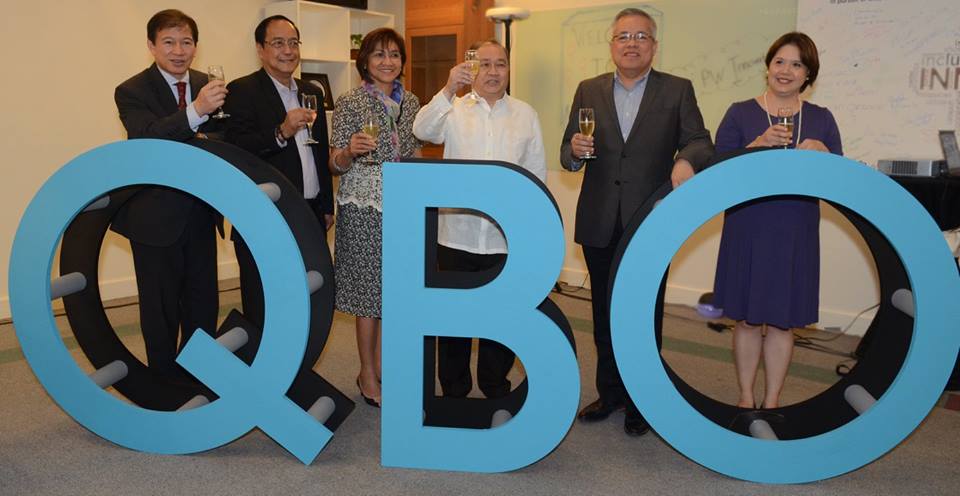 QBO Innovation Hub is touted as the first public-private partnership (PPP) designed to develop, grow, and scale a competitive startup ecosystem in the Philippines. It provides business incubation from ideation to exit. QBO was launched in August 2016 by its founding partners Department of Trade and Industry (DTI) (through its Export Marketing Bureau), IdeaSpace Foundation, the Department of Science and Technology (DOST), and J.P. Morgan.
QBO Innovation Hub is touted as the first public-private partnership (PPP) designed to develop, grow, and scale a competitive startup ecosystem in the Philippines. It provides business incubation from ideation to exit. QBO was launched in August 2016 by its founding partners Department of Trade and Industry (DTI) (through its Export Marketing Bureau), IdeaSpace Foundation, the Department of Science and Technology (DOST), and J.P. Morgan.
QBO now links innovators, explorers, investors, academic institutions, start-up mentors, investors and enablers as well as a broad spectrum of partners and stakeholders from both public and private sectors. Its programs include incubation, consultation, investors pitch, specialized workshop, coworking space, among others. Pronounced as “koo-bo”, QBO is named after the iconic “kubo”, a nipa hut or stilt house that represents Philippine culture, mostly rural culture.
Headquarters: QBO Innovation Hub
DTI International Building
375 Senator Gil J. Puyat Avenue
Makati City, Metro Manila 1209
Philippines
Startup Village

Startup Village is a newbie incubator-accelerator launched in February 2017 in Makati City led by its founder and entrepreneurship professor Jay Bernardo. It is a program of the LET’S GO Foundation (Leading Entrepreneurs Towards Sensing Global Opportunities), a non-profit, non stock organization that Bernardo founded in 2001 in order to support small and medium scale entrepreneurs.
Startup Village is manned by experienced academicians, practitioners, startup founders and business gurus that guide startups through a tried and tested process. Its program called The Gift is a 14-week, once a week training program, designed to bring the best out of a starting entrepreneur. Classes conducted use various techniques including case studies, videos, lectures games and the like thus making each session fun and interactive.
Headquarters: Startup Village
5th floor, The City Club, Alphaland Makati Place, Ayala Ave. extension cor Malugay Street, Makati City, Philippines
Spring.ph

SPrInG.PH is the “Software Products Incubation Group” of the Philippines Software Industry Association (PSIA), that was launched by the 30-year-old association in 2011 to help the local software development industry create and commercialize at least 10 globally-recognized software products in various categories. Spring.ph now almost has 50 companies (representing PSIA member and non-member companies) and 24 product teams.
Among Spring.ph’s activities are monthly coaching sessions and forums, quarterly workshops and launchpad events, including a nationwide student startup competition called the Philippine Start-up Challenge (PSC) designed for college students specializing in software application, IT, computer science, among others. Spring.ph now claims to have a portfolio of 25 startups and more are being added during the quarterly LaunchPad events.
Headquarters: Spring.ph
7th Avenue corner 30th Street
Bonifacio Global City, Taguig City
Metro Manila, Philippines
UPSCALE
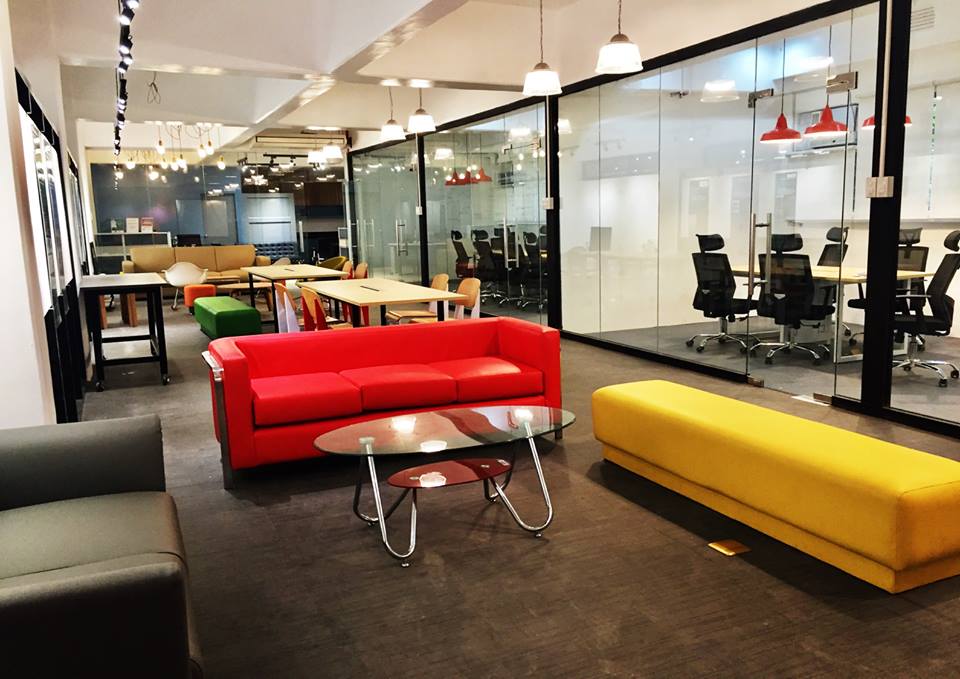
The UPSCALE is an innovation hub at the University of the Philippines (UP) in Diliman, Quezon City launched in January 2017 by the Department of Science and Technology (DOST) through the Philippine Council for Industry, Energy, and Emerging Technology Research and Development or DOST-PCIEERD. UPSCALE stands for “UP Sustaining Collaboration in an Advanced Learning Environment” ? a facility equipped with tools and resources necessary to “turn ideas into reality” and foster the growth and commercialization of startup businesses as a product of science and technology. It houses smart conference facilities, business incubation spaces, and technology-equipped platforms, and provides access to subject matter experts, knowledge-based references, and relevant market validation.
The hub features two programs: the Industry-Government Network for Innovation and Technology Entrepreneurship (UP Ignite), and the DOST-UP Enterprise Center for Technopreneurship. The Technology Business Incubator (TBI) is one of the programs of the DOST-PCIEERD that aims to assist startup technology-based businesses at the development stage. It provides a range of resources, services, and facilities that will help them be financially viable and competent in the market.
Headquarters: UPSCALE
National Engineering Center, Juinio Hall
University of the Philippines, Diliman
Quezon City, Philippines
xchange
xchange is an incubator for early-stage social enterprises in the Philippines. It invests in organizations – both for-profit and non-profit – whose core mission is the creation of value for marginalized communities in the Philippines. As an active investor, xchange works closely with its portfolio companies to help them achieve their goals. Beyond capital, xhcange seeks to contribute its expertise in enterprise management and finance, built over decades of firsthand experience.
Some of xchange’s portfolio of startups include Kickstart Ventures-backed Bagosphere, and 500 Startups-funded mobile phone engagement platform engageSPARK. Bagosphere assists rural out-of-school youths gain the necessary skills to join the BPO industry via its “study now, pay later” call center training facility. engageSPARK is a platform for businesses and NGOs to interact, at scale, with the 5 billion people who have no Internet access or can’t afford data plans regularly.
Headquarters: co.lab xchange
Unit 301 #3 Brixton St.
Brgy. Kapitolyo, Pasig
1603
Metro Manila, Philippines
Featured image via Pixabay



